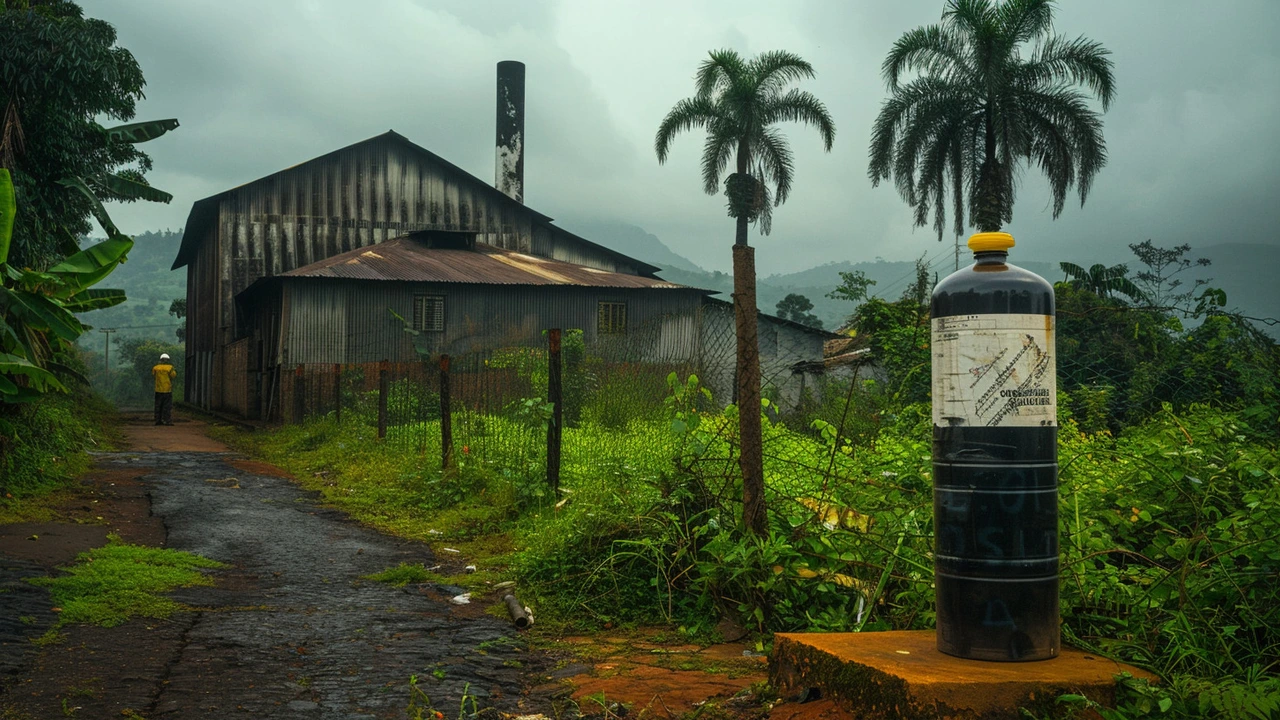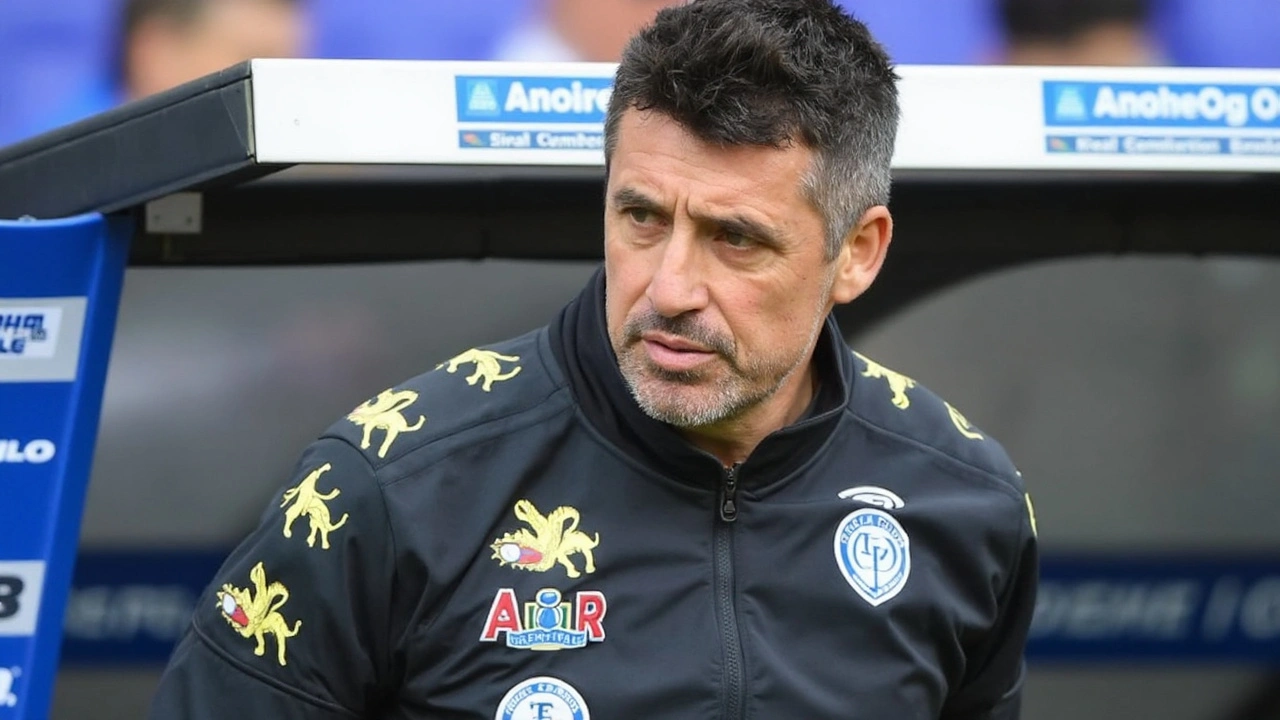Community's Struggle Against Lead Pollution in Congo
The residents of a working-class neighborhood in Congo are grappling with a severe pollution crisis, all tracing back to the Metssa Congo lead factory. This factory, known for being one of the world's leading recyclers of used batteries and lead, has turned from a local employment hub into a public health nightmare. The air is thick with lead-laden dust and pungent smells that permeate the streets and homes of the neighborhood, transforming the environment into a toxic trap.
Cyrille Ndembi, a resident deeply affected by the situation, has led his neighbors into a legal battle against the company. Cyrille's personal journey reads like a grim health report: since moving to the neighborhood in 2019, he and his family have been suffering from chronic pneumonia, a condition exacerbated by their exposure to the polluted air. Overwhelmed by health issues, Cyrille sought assistance; subsequent laboratory tests conducted in France revealed alarming levels of lead in his and his family's blood.
A Legal Battle for Health and Justice
Confronted by these bleak revelations, the community has sought legal recourse. Cyrille and his neighbors are pushing for the closure and relocation of the Metssa Congo facility. Their battle has caught the attention of an administrative summary judgment judge who has ordered the temporary suspension of the plant’s activities, pending a final ruling. This decision was a momentary relief, a small victory for the beleaguered residents.
However, the fight is far from over. The company, in a bid to defend its operations, has insisted that it adheres to international industrial standards. In a public statement, Metssa Congo emphasized that their practices are aligned with global safety norms, a claim met with skepticism by the suffering residents. The legal case is ongoing, with the court yet to determine if indeed the factory's activities are the primary cause of the lead poisoning.
Meanwhile, the conditions have not improved significantly for those continuing to live in the shadow of the factory. Toxic gases continue to pollute the air, and health conditions among residents show little to no signs of improvement. The community remains in a state of constant worry, their health becoming more fragile by the day.
A Community in Crisis
The residents' ordeal has extended beyond health issues; it has disrupted their daily lives. Children have been kept indoors more often to avoid exposure, and ordinary activities like playing outside or even walking to school have become risky. Schools have recorded higher absenteeism rates due to the increasing number of children falling ill. The psychological toll on the residents is profound, with many expressing feelings of helplessness and abandonment.
Economic activities in the neighborhood have also suffered. Smaller businesses, particularly those dependent on local patronage, report reduced customer flow as health concerns keep people indoors. The housing market in the area has plummeted, with plummeting property values as potential buyers steer clear of the polluted zone. Ironically, what was once an appealing area due to employment opportunities from the factory has now become a no-go zone due to the same factory’s detrimental impact.
Global Implications and the Role of International Standards
This crisis extends beyond local boundaries, highlighting the global issue of industrial pollution and the often-disparate application of safety standards. It raises critical questions about the accountability of multinational companies operating in regions with less stringent regulatory frameworks. When companies claim compliance with international standards, the onus is on global governing bodies to ensure these standards are uniformly applied and enforced worldwide. The situation in Congo is a stark reminder of the human cost when that compliance is left unchecked.
The residents of this Congolese neighborhood represent just one of many communities worldwide suffering from unchecked industrial activities. Their plight is a call to action for stronger regulatory interventions and more significant corporate accountability. As the legal battle unfolds, it shines a light on the urgent need for robust measures to protect vulnerable populations from industrial exploitation and environmental degradation.
Awaiting Justice
As the court deliberates, the community waits in a state of uneasy limbo. The legal journey is often long, and for these residents, each day brings new challenges. Their hope lies not just in a favorable legal ruling but in seeing tangible changes that restore the health and safety of their neighborhood. The temporary suspension of the factory’s activities is a step in the right direction, but for many, it feels like placing a band-aid on a gaping wound. The root cause—unsanctioned industrial pollution—needs to be addressed comprehensively and urgently.
In the face of adversity, Cyrille Ndembi and his neighbors have shown remarkable resilience. Their collective action highlights the power and importance of community solidarity in fighting for environmental justice. Their battle is not just for their own well-being but for that of future generations who deserve to grow up in a safe and healthy environment.
The ongoing case, regardless of its outcome, underscores a broader narrative about the human impact of industrialization. It calls on stakeholders—from local governments to international bodies—to advocate for and enforce policies that balance industrial progress with environmental and public health protections. As the world watches, the resolution of this crisis in Congo could set a critical precedent for communities grappling with similar challenges worldwide.
The Path Forward
The community’s plight reveals the intersection of environmental justice and human health. It begs a robust dialogue among policymakers, industry leaders, and communities on how to sustainably progress without compromising public health. The outcome of the legal battle will determine not just the future of this neighborhood but could influence policy changes and enforce stronger regulations to safeguard communities from industrial pollution.
The situation in Congo is a stark illustration of the need for equitable practices in global industrial operations. It is a call to action to ensure that regions with lower regulatory standards are not exploited and that their residents are afforded the right to a safe and healthy living environment. As Cyrille Ndembi and his neighbors continue their fight, they embody a larger struggle for social and environmental justice that resonates across borders.





